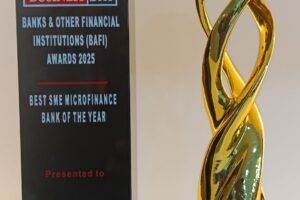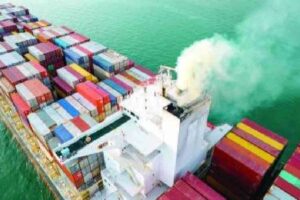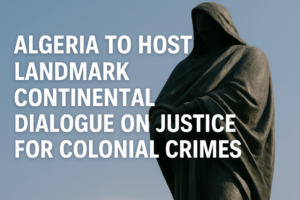
Integrity is not a slogan or an accessory. It determines how an organisation will either resist pressure, adapt or fail.
The majority of the leaders consider external threats, yet the most common threats are internal. They are present within the workplace.
Insider fraud, absence of controls, mistrust and ethical burnout can generate more value than any out-of-pocket competitor or cyberattack.
Follow The Standard
channel
on WhatsApp
When the trust is gone, so is the momentum. Integrity isn’t just a personal value; it’s the compass that guides leaders and organisations through uncertainty.
As Proverbs 11:3 reminds us, “The integrity of the upright guides them, but the unfaithful are destroyed by their duplicity.”
When leaders make consistent, ethical choices even when no one is watching, they create stability, trust, and resilience.
Just as the column emphasises, foresight isn’t about predicting every threat; it’s about building a culture where integrity shapes decisions, protects the organisation, and ensures it can endure challenges from within and outside.
Technical competence is not bad, but it is not adequate. An organisation‘s identity is defined by its integrity, emotional intelligence, communication, and competence.
They affect individuals‘ choices in the absence of a witness. In the presence of such characteristics, performance sustainability is achieved. Even well-performing environments would silently be destroyed when they were weak.
This week’s signal: Ethical strength has become a core requirement of modern leadership
The notion of ethics in any industry is no longer a checkmark to a leadership requirement. Since the pandemic, many organisations have revised their risk models to prioritise integrity.
Leaders are expected to be open, non-violent, and firm. The strength of ethics has watered down the art of doing things.
Malpractices and fraud do not just cost money. They damage confidence. Once the trust is lost, it is not easy to regain, and may require building a culture on a clean slate.
Companies that view ethics as a strategic asset not only preserve their reputation but also save their potential power.
Stay informed. Subscribe to our newsletter
What it means for business
Risk does not occur in a single occurrence. It evolves under loose oversight, subtle behavioural changes, or patterns that cannot be discerned.
These suspicious issues include collaboration or Internet fraud and could be signalled by suspicious reporting, financial ease without explanation, or changes in lifestyle or friends.
Unethical behaviour causes are not something new in the world.
Pressure to deliver, outdated systems, personal financial strain and a desire for quick rewards.
Awareness is not something the leader can work on.
They should show the examples and promote candour; in addition, they should create space where candour is not seen as a danger to express themselves.
Technology is one of the solutions. Password checking, adherence to strong password habits, network security, and regular checkups are the basic requirements of modern organisations.
Analytics and surveillance systems are particularly beneficial in the financial services industry for detecting suspicious customer or employee activity. Ethical protection has now been incorporated with computer protection.
What it means for policy
Regulation and enforcement are significant, though not consistently effective in preventing corruption. Promotion requires good incentives. A Business Integrity Index, whether global or regional and adjusted to local conditions, would encourage organisations to lead in transparency, sound governance, and employee care.
This would enhance credibility as a competitive advantage since ethical excellence would be publicly acknowledged.
Firmer systems of governance make boards accountable.
Ethical certification might raise expectations and establish more rigorous standards. Trust, as a form of market, is a strategic as well as a moral weakness in a world where trust makes a market.
What it means for people
Integrity is a process that begins with individuals making daily decisions consistent with their values. The employee does not wish to compromise on the process.
The manager identifies discrepancies. The leader is the one who does not make promises when it is inconvenient. These practices result in strong cultures that are determined in difficult times.
There is integrity due to emotional intelligence and communication. They help people to respond clearly, courageously, and honourably.
Top workers can offer stability to the organisation because of their integrity. They protect reputations and create space for teams to do the best possible work.
Afterthought
Integrity is developed through consistency in decision-making and in establishing expectations and cultures that accommodate honesty. Policies guide behaviour, but culture carries it. These are the organisations that ensure they uphold their values every day, not just in times of misfortune.
Decisions are made on the radar screen, but the future is yours.
The writer is a human-centred strategist and leadership columnist
Follow The Standard
channel
on WhatsApp





